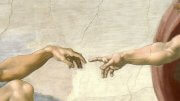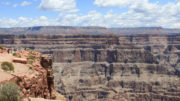New versions of the once popular “gap” theory are now arising. The motive is the same—to accommodate an old universe (and Earth) into Genesis 1, but to still retain a recent, literal six-day Creation Week. However, correct exegesis with close attention to syntax and semantics, plus the recognition of no verb tenses in the Hebrew, preclude any possible “reading” of long ages into the Hebrew of the key texts, verses 1–3 and 14–16. The strongest argument confirming the traditional view that Genesis 1:1 describes the creation of a young universe at the beginning of Day One of Creation Week is still the link to Genesis 1:2 through the word “earth”.

What is popularly known as the “gap” theory of Genesis 1 originally appeared as a “ruin-reconstruction” theory round about 1814 in Edinburgh in Scotland. There has recently come into being a “gap” theory without the ruin-reconstruction element. This article will examine some syntactic and semantic features of the Hebrew of Genesis 1 in order to evaluate these theories, but I will begin by looking into the historical situation.
An historical perspective
The chief arguments in the nineteenth century were that:
- the verb in Genesis 1:2a could be translated “became” instead of “was”.
- “darkness” is evil in Scripture, hence Genesis 1:2b indicates a falling away from the perfection of Genesis 1:1.
- the phrase tohu-wa-bohu always indicates destruction and judgment.
Continue to full article on Creation Ministries International




